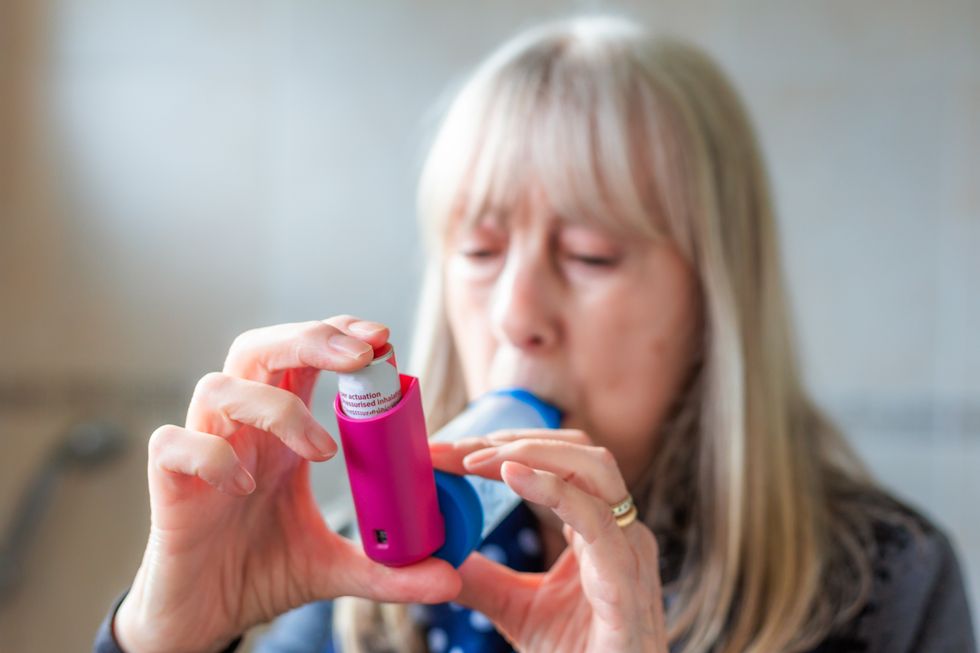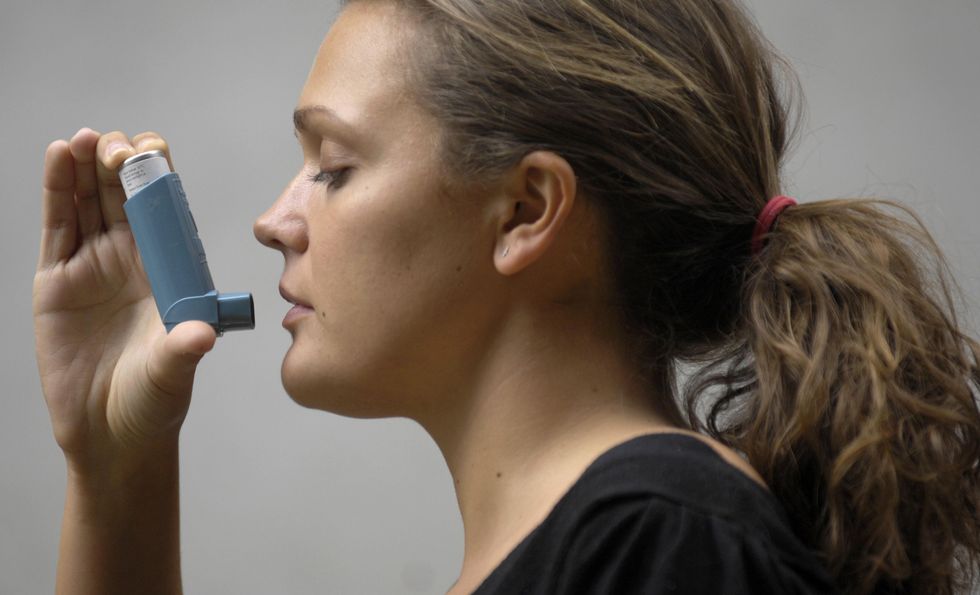Asthma treatment breakthrough as researchers find first new attack medicament in 50 years

Patients receiving steroids had a treatment failure rate of 74 per cent, while those on Benralizumab experienced only 45 per cent failure
Don't Miss
Most Read
Latest
Scientists have discovered the first new treatment for asthma attacks in 50 years, offering hope to millions of UK patients.
The breakthrough involves an injection called Benralizumab, which could potentially treat around two million asthma attacks in Britain annually.
Researchers at King's College London hailed the drug as a "game-changer" that could revolutionise patient care.
The treatment works by targeting specific immune system responses that trigger asthma attacks, offering a more precise approach than traditional treatments.
KCL Professor Mona Bafadhel said: "Now we can see there are different patterns of inflammation, we can be smarter and get the right treatment, to the right patient, at the right time."
The development marks a significant shift in asthma treatment, which has remained largely unchanged for half a century.
Benralizumab specifically targets eosinophils, a type of white blood cell that can cause inflammation and damage in the lungs.
This targeted approach has shown remarkable results in clinical trials involving 158 patients over three months.

A woman using an inhaler
|GETTY
The study, published in the Lancet Respiratory Medicine, revealed a significant improvement compared to traditional steroid treatments.
Patients receiving steroids had a treatment failure rate of 74 per cent, while those on Benralizumab experienced only 45 per cent failure.
The new therapy also resulted in fewer hospital admissions and reduced need for additional treatment.
Currently, when regular inhalers fail to control asthma attacks, doctors prescribe steroids.
The new treatment could offer a more effective alternative, particularly as eosinophils are involved in about half of all asthma attacks.
Alison Spooner, 55, from Oxfordshire, shared her experience as one of the trial participants, describing her lifelong battle with asthma.
LATEST DEVELOPMENTS:
Another stock image of a woman using an asthma inhaler
| PAHer condition had worsened significantly over the past five years, resulting in three major attacks.
"They seemed to be getting worse, the severe lack of breath was quite frightening when you're gasping and there's nothing to gasp at," she said.
The impact of Benralizumab on her condition was dramatic, with Spooner reporting feeling "drastically different" after receiving the injection.
Though she continues to use her inhalers as prescribed, her experience with the new treatment has been remarkable.
"Unfortunately, no drug gets rid of asthma completely, but this is the nearest thing. It's a bit of a miracle actually," she added.
Geoffrey Pointing, 77, from Oxfordshire, offered another compelling testimonial from the trial, focusing on the reduced side effects compared to traditional treatments.

Man using inhaler
|GETTY
"I didn't get any side effects like I used to with the steroid tablets," he reported.
The improvement in his sleep quality was particularly notable.
"I used to never sleep well the first night of taking steroids, but the first day on the study, I could sleep that first night, and I was able to carry on with my life without problems," Pointing said.
His experience highlights a significant advantage over conventional steroid treatments, which are known to cause side effects including weight gain, diabetes and weak bones.
The positive patient experiences support the potential of Benralizumab as a breakthrough treatment for asthma attacks.
Despite promising results, Benralizumab is not yet ready for widespread use.

Young woman using an inhaler and touching her chest
|GETTY
A larger trial is scheduled to begin in 2025 and will run for two years to confirm the treatment's benefits.
The upcoming study will also need to assess cost-effectiveness, as monoclonal antibodies like Benralizumab are typically expensive medications.
Dr Sanjay Ramakrishnan from the University of Oxford noted that the work "shows massive promise".
With an estimated four asthma deaths and 85 COPD deaths occurring daily in the UK, the need for new treatments is urgent.
Dr Samantha Walker from Asthma + Lung UK welcomed the results as "great news".
However, she added: "But it's appalling that this is the first new treatment for those suffering from asthma and COPD attacks in 50 years."
Patients currently using these drugs are advised to continue following their prescribed treatment plans.











